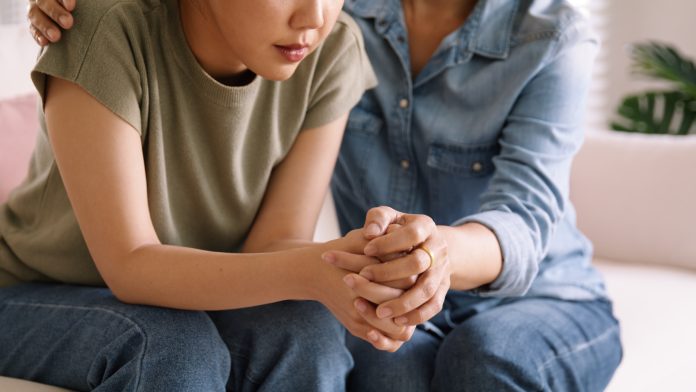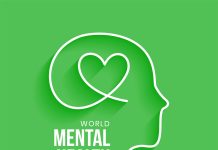headspace National Youth Mental Health Foundation provides early intervention mental health services to 12-25-year-olds. Each year, headspace helps thousands of young people access vital support through its centres in 163 communities across Australia. CEO Jason Trethowan tells us more about the charity’s work
The journey from childhood to adulthood, including adolescence, can be challenging. This stage of life is marked by significant physical, social, emotional and behavioural changes. Young people are exploring and building their identity, enjoying greater independence and connection. While this is often an exciting time in a young person’s life, it can also be difficult.
A landmark paper published earlier this year in the Lancet Journal – penned by more than 50 global experts in the youth mental health sector and led by prominent psychiatrist and headspace patron Professor Patrick McGorry – declared that youth mental health has entered ‘a dangerous phase.’ The Lancet Psychiatry Commission on Youth Mental Health found that rising intergenerational inequality, unregulated social media, wage theft, insecurity of employment, and climate change are driving a ‘dangerous’ surge of youth mental ill health among societies across the globe.
While the Commission stressed the urgent need to address the ongoing youth mental health crisis, it recognised headspace National Youth Mental Health Foundation as a leader in the global response to the growing challenge. The paper references three independent evaluations that found the headspace model has a positive impact on young people’s access to care and mental health outcomes, especially for young people with mild-to-moderate mental health needs.
What is headspace?
headspace National Youth Mental Health Foundation was created in 2006 in response to the recognition that the existing mental health systems needed to be much more accessible and effective for young people seeking mental health support.
The latest data from the Australian Bureau of Statistics (ABS) showed nearly 40% of young Australians aged 16 to 24 – more than one million people – experienced a mental health disorder in the previous year. With more than 75% of mental health disorders occurring before the age of 25, headspace works with young people at a critical time in their lives and aims to help get them back on track and strengthen their ability to manage their mental health in the future.
Funded by the Australian Government’s Department of Health and Aged Care, headspace provides safe, youth- friendly health and wellbeing services for young people and families. The organisation provides holistic support via four streams: mental health, physical and sexual health, alcohol and other drugs, and vocational services.
Each year, headspace helps thousands of young people access vital support through headspace centres in communities across Australia, online and phone counselling services, and through its presence in schools.
Building communities of care across Australia
headspace recognises that a young person’s support network plays an important role in looking after their mental health needs and is striving to build communities of care across Australia. Young people tend to go where they feel most comfortable and safe when they’re experiencing mental health challenges. Therefore, they often rely on informal support to manage their wellbeing – like their friends, families, educators and other community members. headspace ensures that these informal supports are better equipped to have important conversations by building their mental health knowledge, skills and capacity.
Supporting family
At headspace, family is defined uniquely by each young person. Family and other caregivers – whether by birth, choice or circumstance – hold a significant role in supporting a young person by fostering a sense of belonging and connection through their shared experience. The term family may include parents, caregivers, siblings, partners, elders, kin, mentors and other community members who are viewed by the young person as people who play a significant emotional, cultural, faith-based or other role in their life.
Families play a crucial role in young people’s circle of care, which is why headspace offers specific programs designed to help them better recognise the signs and symptoms of mental health challenges and provide timely support. Family of young people can access online or over-the-phone support through headspace, a confidential, free and safe space to talk about what’s going on with their young person. headspace also holds professional-led group chats, where people caring for young people can connect with each other and share their experiences.
headspace in Schools & Communities
headspace Schools & Communities is a national workforce that supports, engages and partners with education and health sectors across Australia to build the mental health literacy and capacity of workforces. headspace delivers the Mental Health Education Program in secondary schools across Australia.
The workshops are designed to increase student understanding of mental health and wellbeing. headspace, through their Schools and Communities team, also aims to equip communities to prepare, respond and recover following adverse events, including death by suicide, natural disasters, or other incidents headspace Schools & Communities is a national workforce that supports, engages and partners with education and health sectors across Australia to build the mental health literacy and capacity of workforces. headspace delivers the Mental Health Education Program in secondary schools across Australia.
The workshops are designed to increase student understanding of mental health and wellbeing. headspace, through their Schools and Communities team, also aims to equip communities to prepare, respond and recover following adverse events, including death by suicide, natural disasters, or other incidents.
Signs and symptoms of mental health difficulties in young people
Everyone can experience the signs and symptoms of mental health difficulties from time to time. It’s common for people to have times in their lives when their sleep, mood, motivation or energy are not going as well as they would like.
There are a number of things that occur in the environment around us that might contribute to mental health difficulties, and these are often difficult to control. These are things like current circumstances, such as stress at school or work, money problems, difficult personal relationships, or problems within your family; difficult life experiences: abuse, neglect, or the loss of someone close to you; individual factors: coping skills and thinking styles; and biological factors: family history of mental health difficulties.
Some common signs and symptoms of mental health difficulties are:
- Cognitive difficulties: difficulty concentrating or focussing, or unusual thoughts
- Changes in feelings: feeling sad or ‘down’, or crying more often, not enjoying, or not wanting to be involved in things that you would normally enjoy
- Physical health changes: changes in appetite or sleep
- Behavioural changes: being involved in risky behaviour that you would usually avoid, like taking drugs or drinking too much alcohol, or depending on these substances to feel ‘normal’
There are several things people can do to look after and maintain their mental health and wellbeing. As a start, incorporating the tips for a healthy headspace allows people to be better prepared to cope with the challenges they face in everyday life. These tips include getting into life, creating connections, learning skills for tough times, eating well, staying active, getting enough sleep and cutting back on alcohol and other drugs. It’s important for young people to remember that there is always someone to whom you can talk. That might be a family member, a friend, or even a professional service like headspace. If you’re located in Australia, find the appropriate service for you or a young person at headspace.org.au











